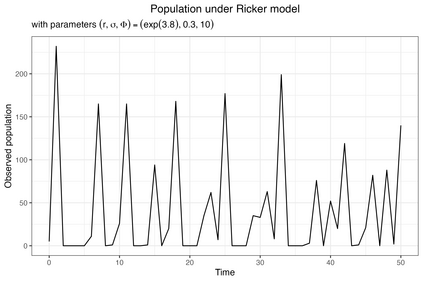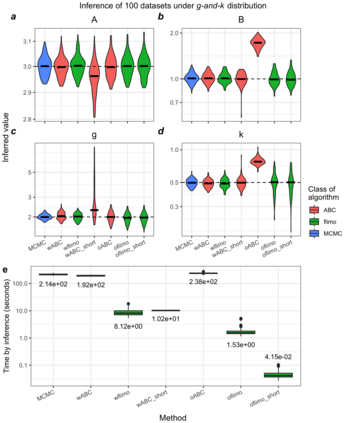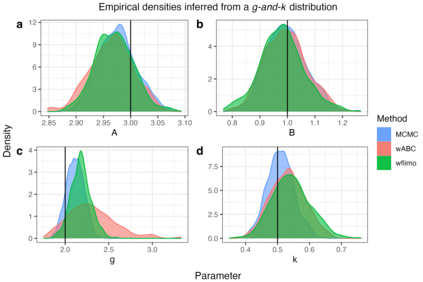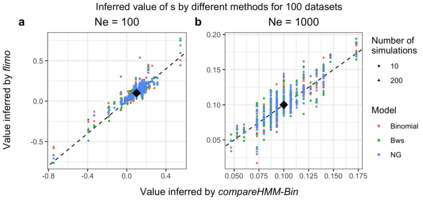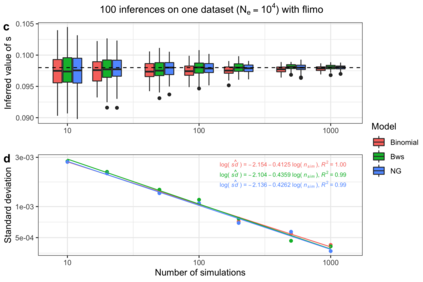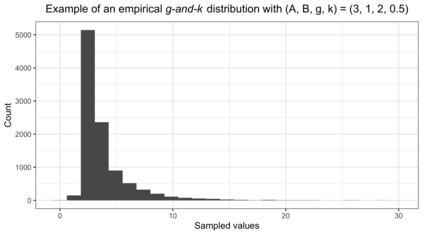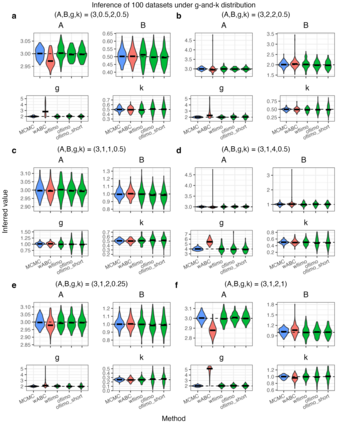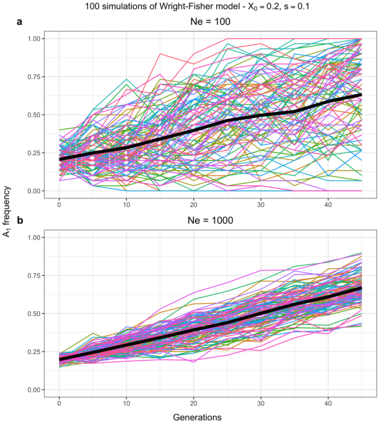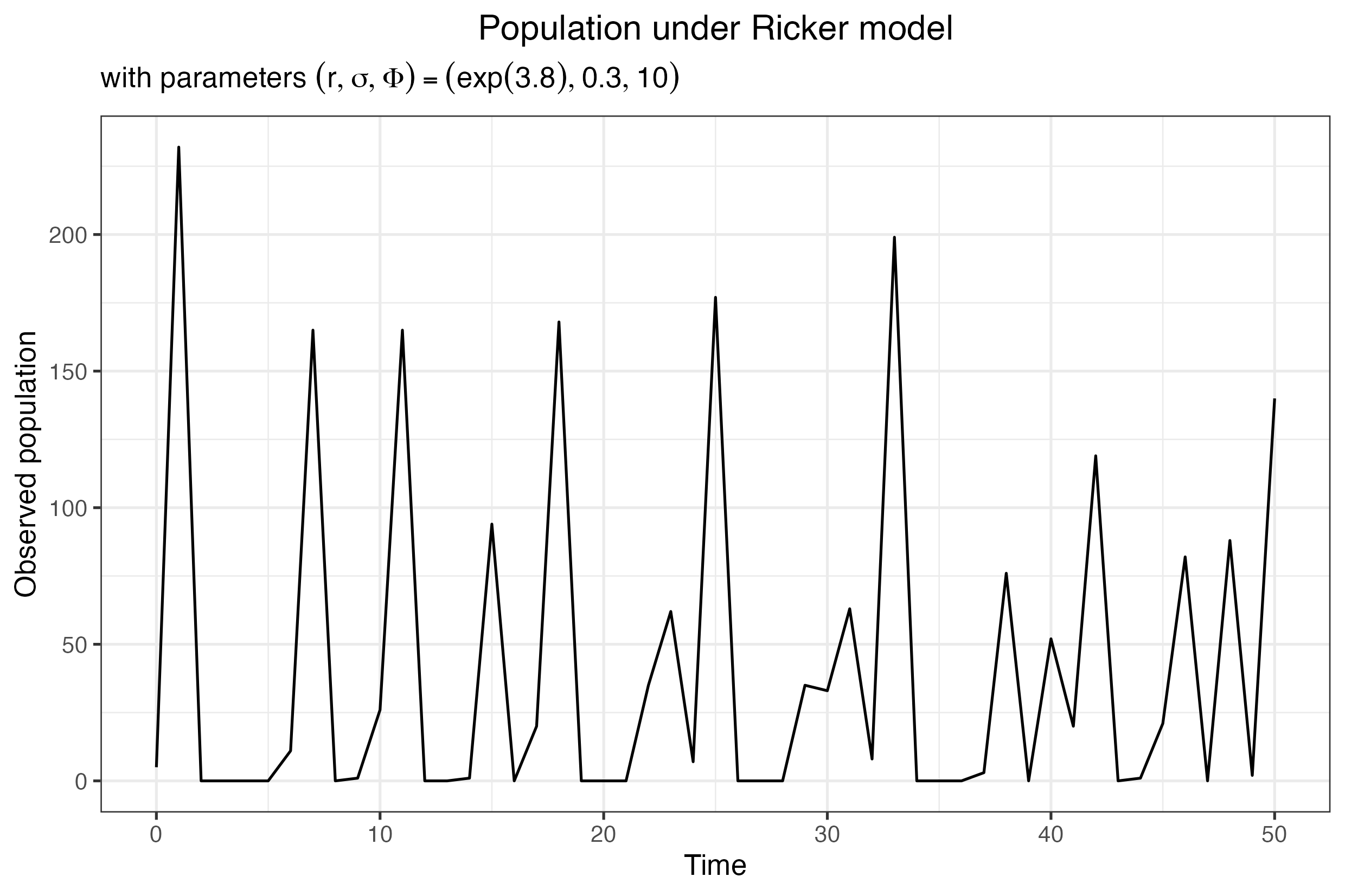Modelling in biology must adapt to increasingly complex and massive data. The efficiency of the inference algorithms used to estimate model parameters is therefore questioned. Many of these are based on stochastic optimization processes that require significant computing time. We introduce the Fixed Landscape Inference MethOd (flimo), a new likelihood-free inference method for continuous state-space stochastic models. It applies deterministic gradient-based optimization algorithms to obtain a point estimate of the parameters, minimizing the difference between the data and some simulations according to some prescribed summary statistics. In this sense, it is analogous to Approximate Bayesian Computation (ABC). Like ABC, it can also provide an approximation of the distribution of the parameters. Three applications are proposed: a usual theoretical example, namely the inference of the parameters of g-and-k distributions; a population genetics problem, not so simple as it seems, namely the inference of a selective value from time series in a Wright-Fisher model; and simulations from a Ricker model, representing chaotic population dynamics. In the two first applications, the results show a drastic reduction of the computational time needed for the inference phase compared to the other methods, despite an equivalent accuracy. Even when likelihood-based methods are applicable, the simplicity and efficiency of flimo make it a compelling alternative. Implementations in Julia and in R are available on https://metabarcoding.org/flimo. To run flimo, the user must simply be able to simulate data according to the chosen model.
翻译:暂无翻译

